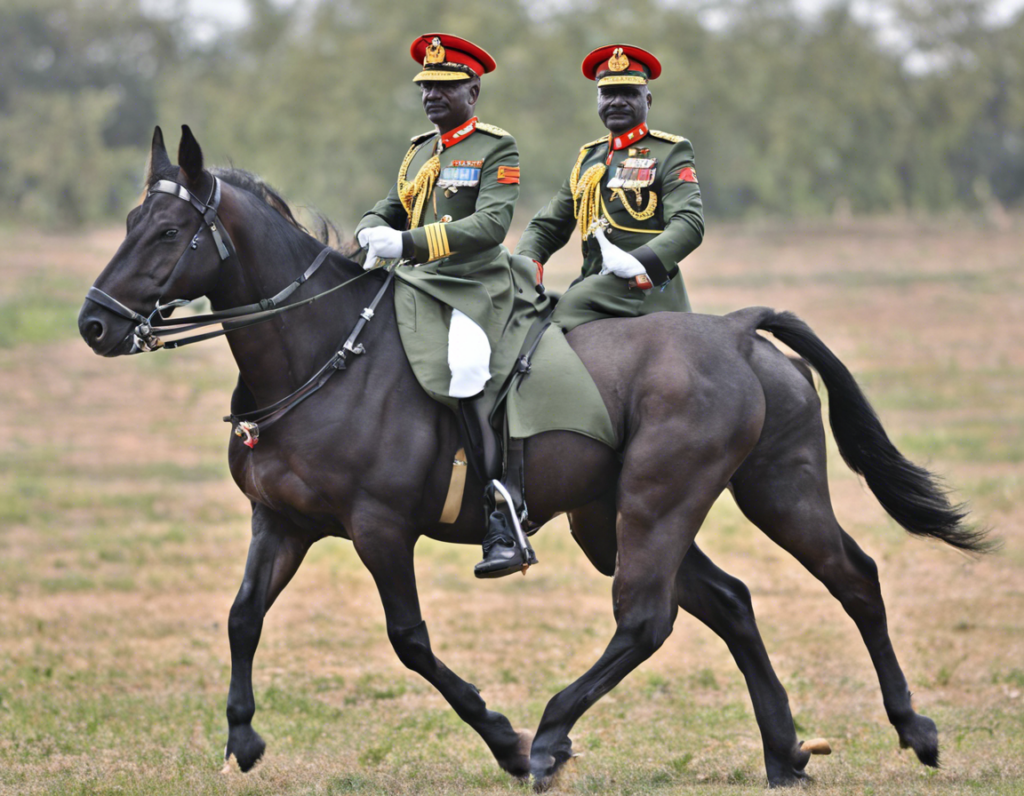
Introduction
In many countries around the world, the role of the Chief of Defence Staff (CDS) is crucial in coordinating and overseeing the armed forces. The CDS is a high-ranking military officer who serves as the principal military advisor to the government and is responsible for managing the overall operational effectiveness of the military. This article will provide a comprehensive overview of the Chief of Defence Staff role, including their duties, responsibilities, qualifications, and challenges they may face.
Duties and Responsibilities
Strategic Planning: One of the primary duties of the CDS is to participate in the development of strategic military plans and policies. They work closely with the government and other military leaders to ensure that military objectives align with national security goals.
Operational Coordination: The CDS is responsible for coordinating and integrating the efforts of the Army, Navy, Air Force, and other branches of the military. They ensure that joint military operations are conducted effectively and efficiently.
Resource Allocation: The CDS plays a key role in determining resource allocation within the military, including budgeting, procurement of equipment, and personnel management. They must balance the needs of different branches of the military to ensure overall readiness and effectiveness.
Military Advice: As the principal military advisor to the government, the CDS provides expert military advice on national security matters. They participate in high-level meetings and brief government officials on military capabilities, threats, and potential courses of action.
International Relations: The CDS represents the military in international forums and plays a key role in developing military partnerships with other countries. They may participate in multinational military exercises, exchange programs, and peacekeeping missions.
Qualifications
Experience: The CDS is typically a senior military officer with extensive experience in various roles within the armed forces. They have a deep understanding of military operations, strategy, and leadership.
Education: A strong educational background is essential for the CDS role. Many CDS candidates have advanced degrees in military studies, strategic management, or related fields. Continuous professional development and training are also important.
Leadership Skills: The CDS must demonstrate exceptional leadership skills, including the ability to inspire and motivate troops, make tough decisions under pressure, and communicate effectively with diverse stakeholders.
Political Acumen: Given the close interaction with government officials, the CDS must have strong political acumen and diplomatic skills. They must navigate complex political environments and build relationships with policymakers.
Challenges
Resource Constraints: The CDS often faces challenges in securing adequate resources for the military. Balancing competing priorities and advocating for sufficient funding can be a constant struggle.
Emerging Threats: The nature of warfare is constantly evolving, with new threats such as cyberattacks, terrorism, and hybrid warfare emerging. The CDS must stay ahead of these threats and adapt military strategies accordingly.
Interagency Coordination: In many countries, the military must work closely with other government agencies, such as intelligence services and law enforcement. The CDS plays a key role in coordinating these efforts and ensuring effective collaboration.
Public Perception: Maintaining public trust and support for the military is essential. The CDS must be accountable, transparent, and responsive to public concerns, particularly in times of conflict or crisis.
Frequently Asked Questions (FAQs)
What is the difference between the Chief of Defence Staff and the Chief of the Army/Navy/Air Force?
The CDS is the senior most military officer who oversees all branches of the armed forces, while the Chiefs of the Army, Navy, and Air Force are responsible for their respective branches.
How is the Chief of Defence Staff appointed?
The appointment process varies by country but typically involves government approval based on recommendations from military leaders and a selection committee.
Can the Chief of Defence Staff make operational decisions independently?
The CDS provides advice and recommendations to government officials, but operational decisions are often made collectively with other military leaders and government representatives.
What role does the Chief of Defence Staff play in times of national crisis?
The CDS plays a critical role in coordinating the military response to national crises, providing strategic guidance, and ensuring effective communication with government officials and other stakeholders.
How does the Chief of Defence Staff interact with international military partners?
The CDS represents the military in international forums, participates in joint military exercises, and collaborates with allies on shared security challenges.
In conclusion, the Chief of Defence Staff plays a pivotal role in ensuring the overall operational effectiveness and strategic direction of the military. Their duties encompass strategic planning, operational coordination, resource allocation, military advice, and international relations. Qualifications for the CDS role include experience, education, leadership skills, and political acumen, while challenges include resource constraints, emerging threats, interagency coordination, and public perception. The FAQs provide further insights into the CDS role and responsibilities.